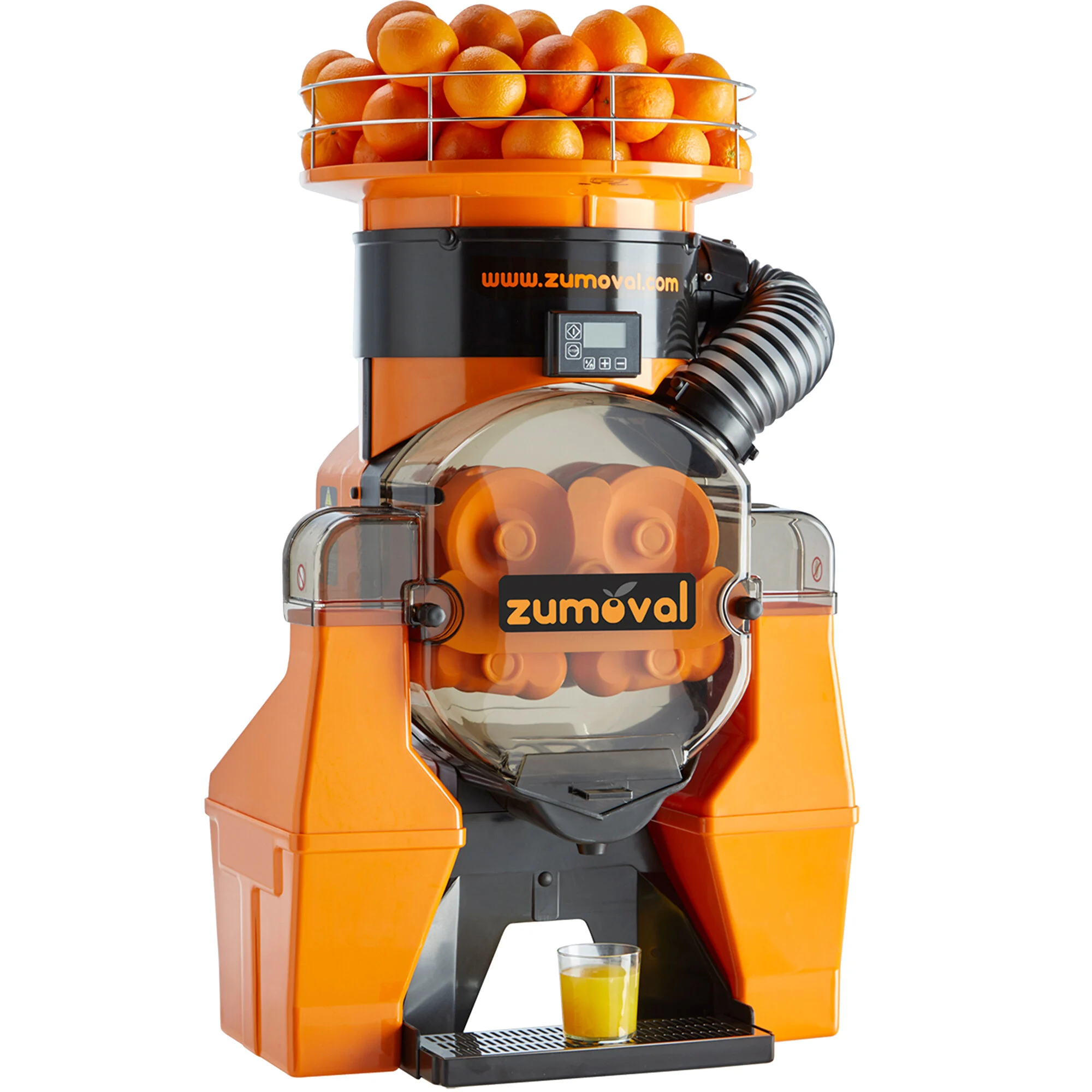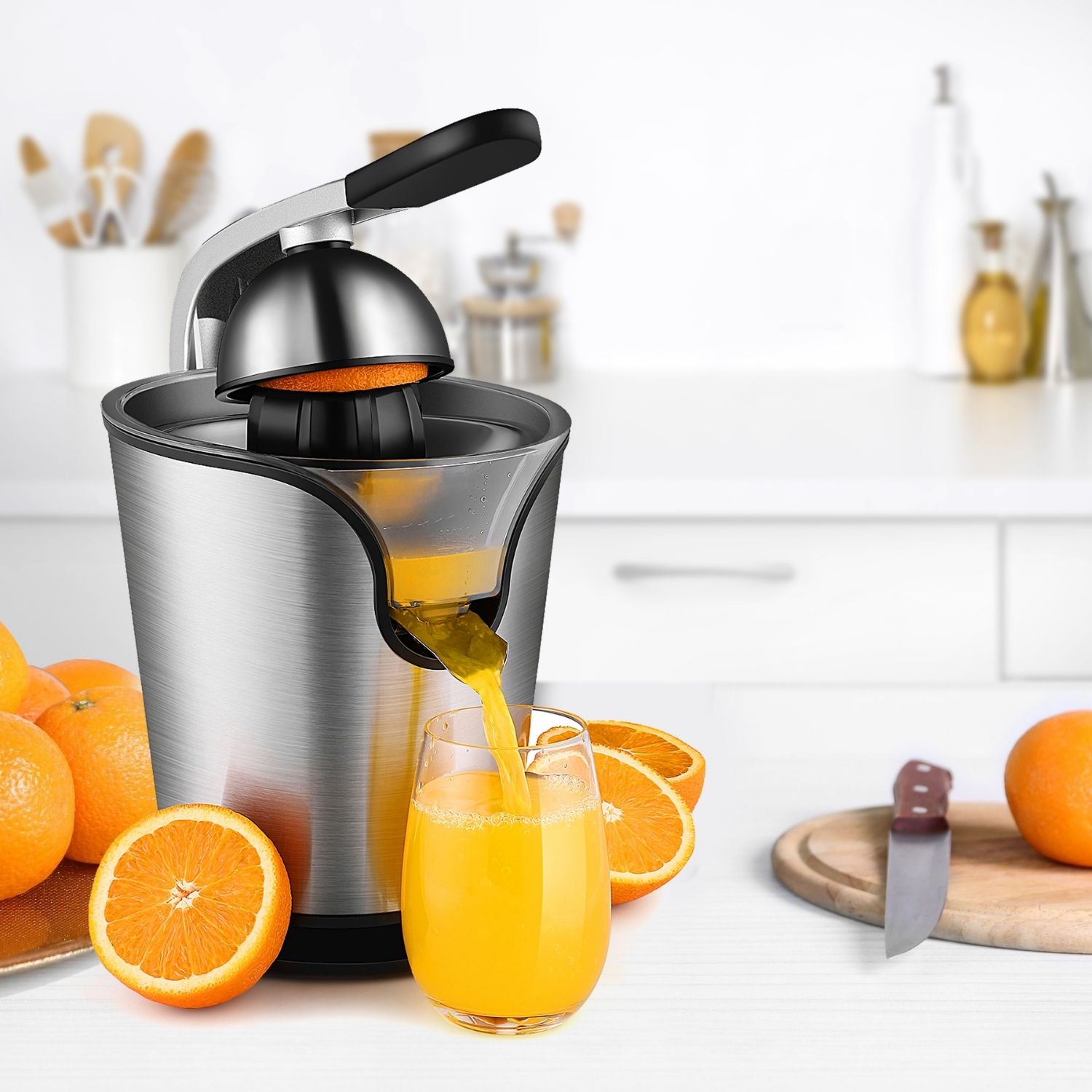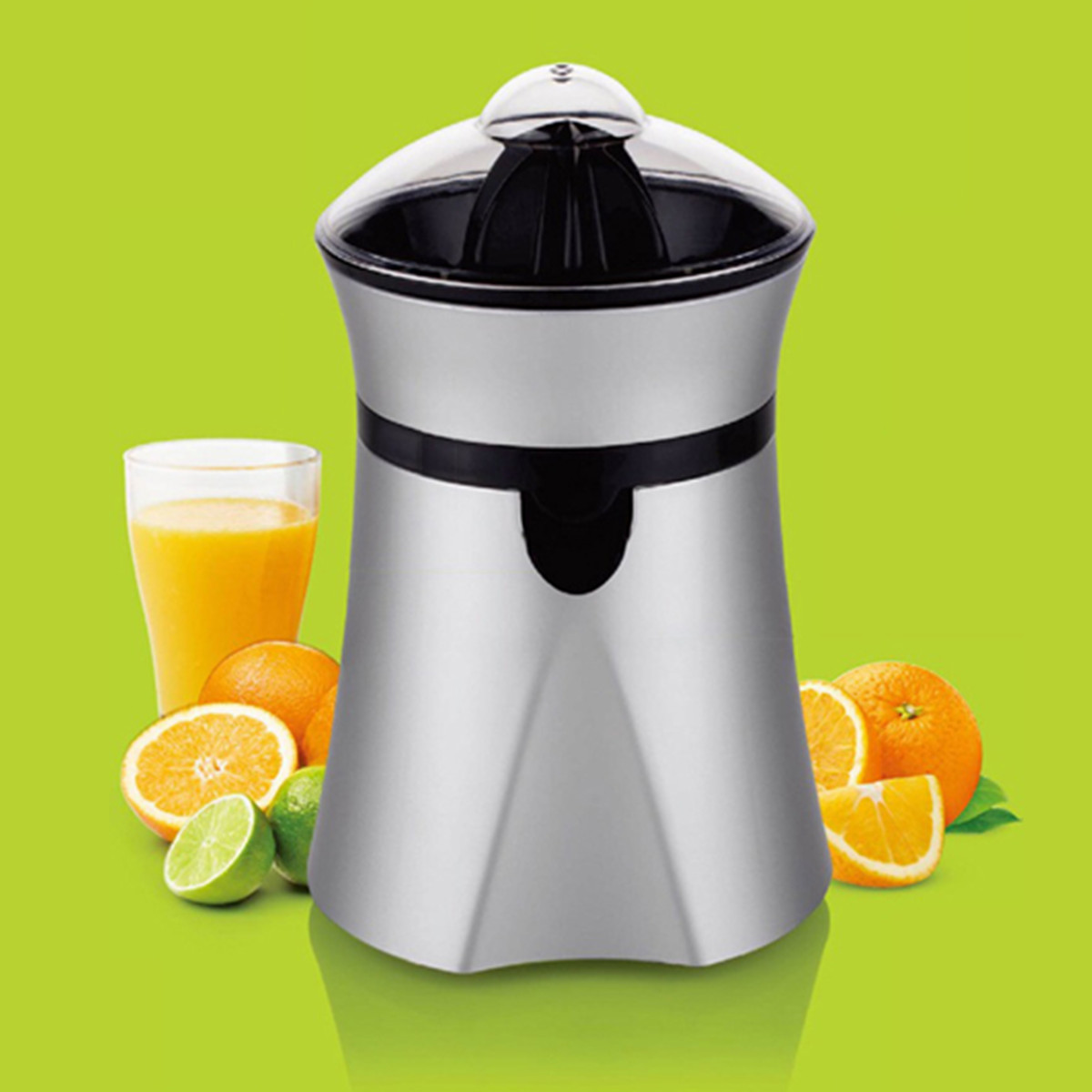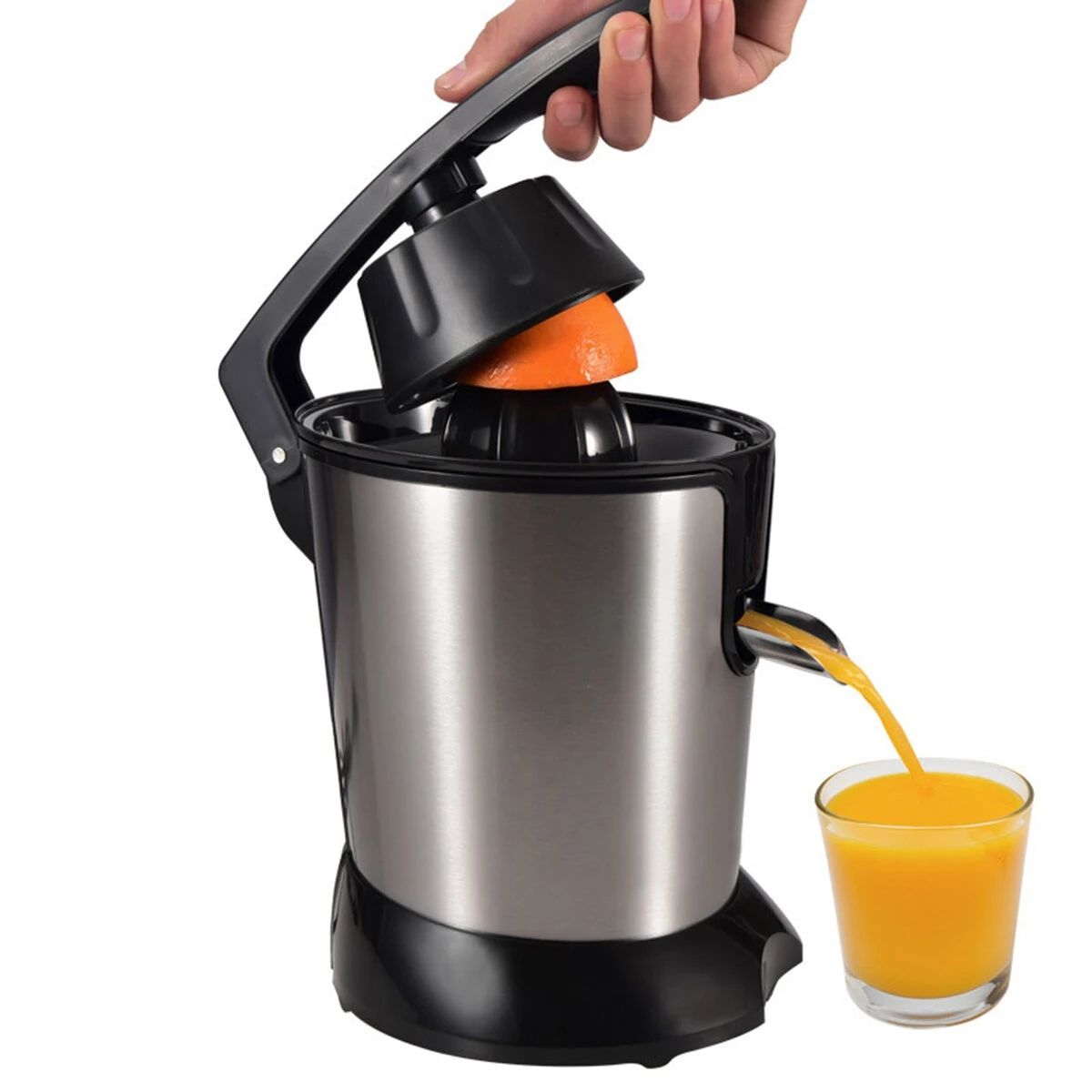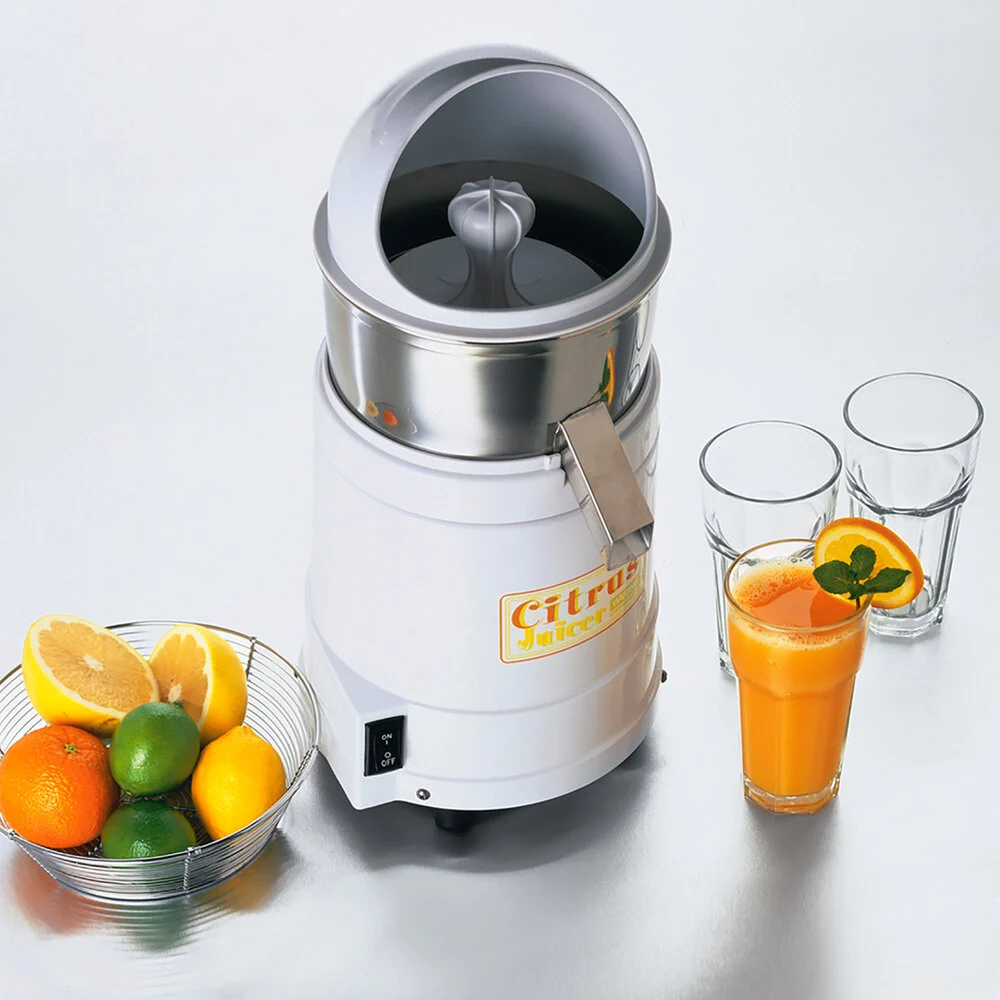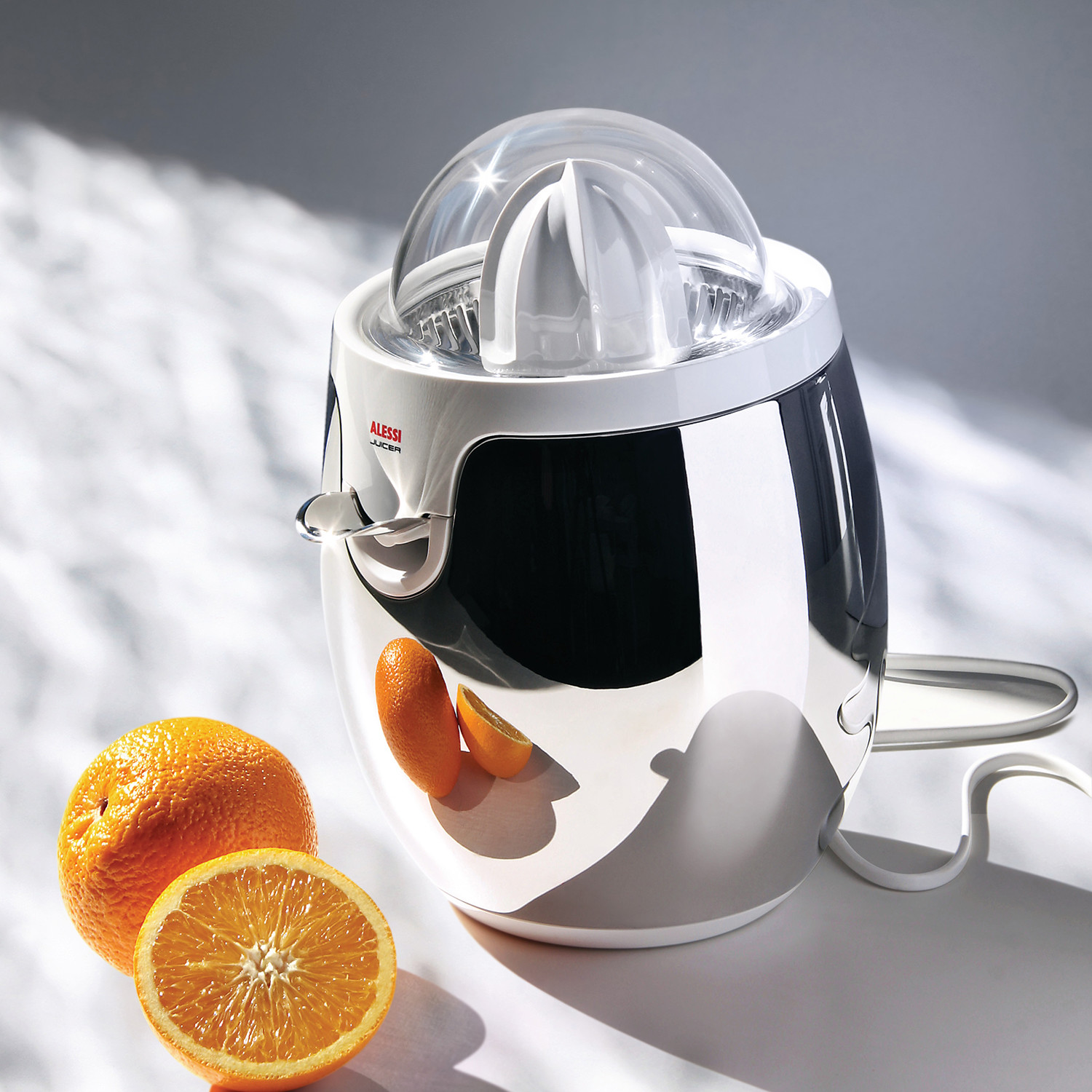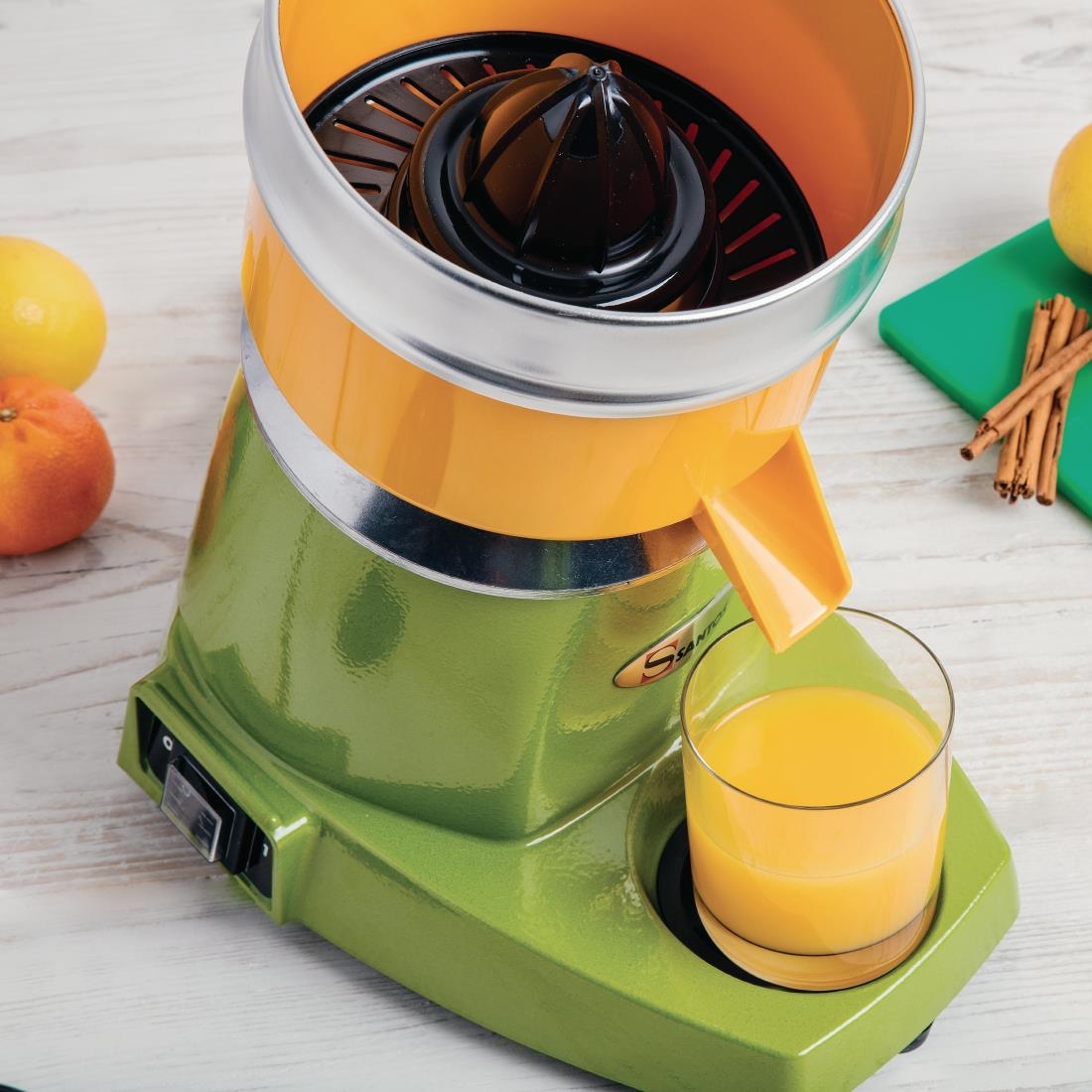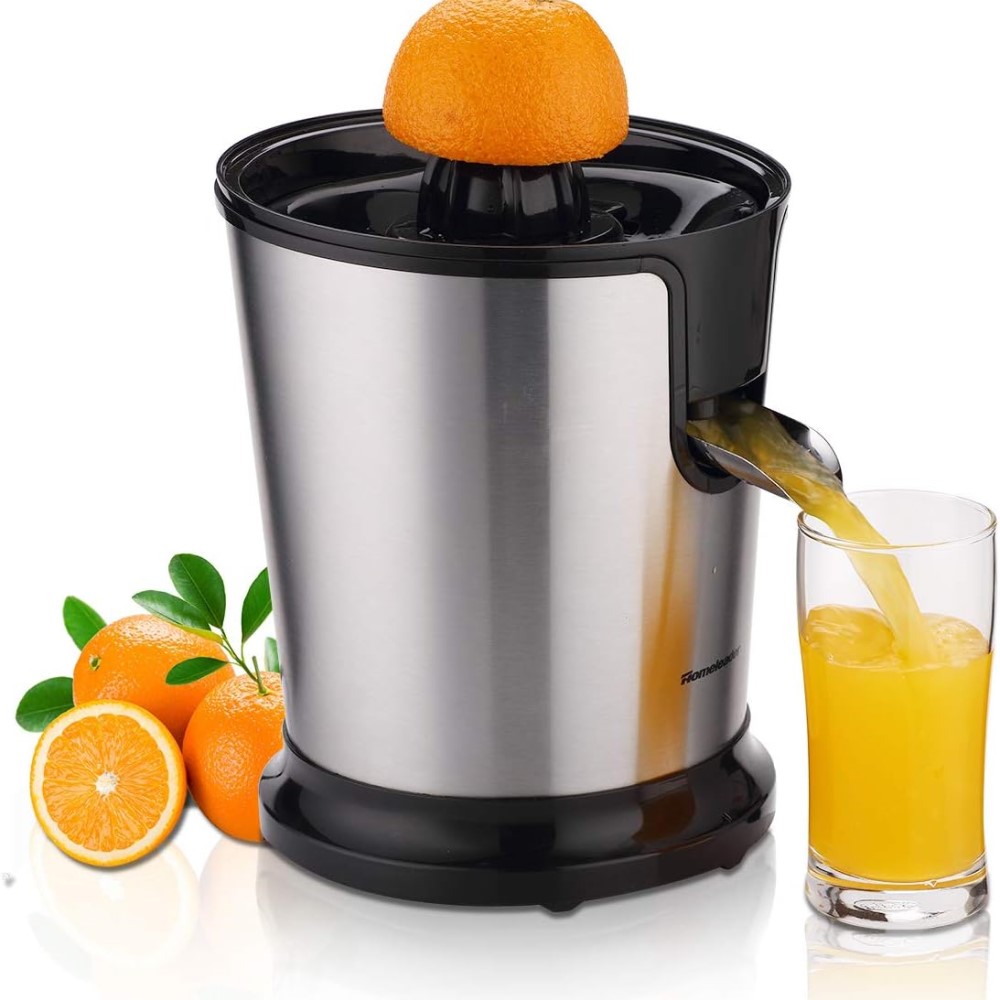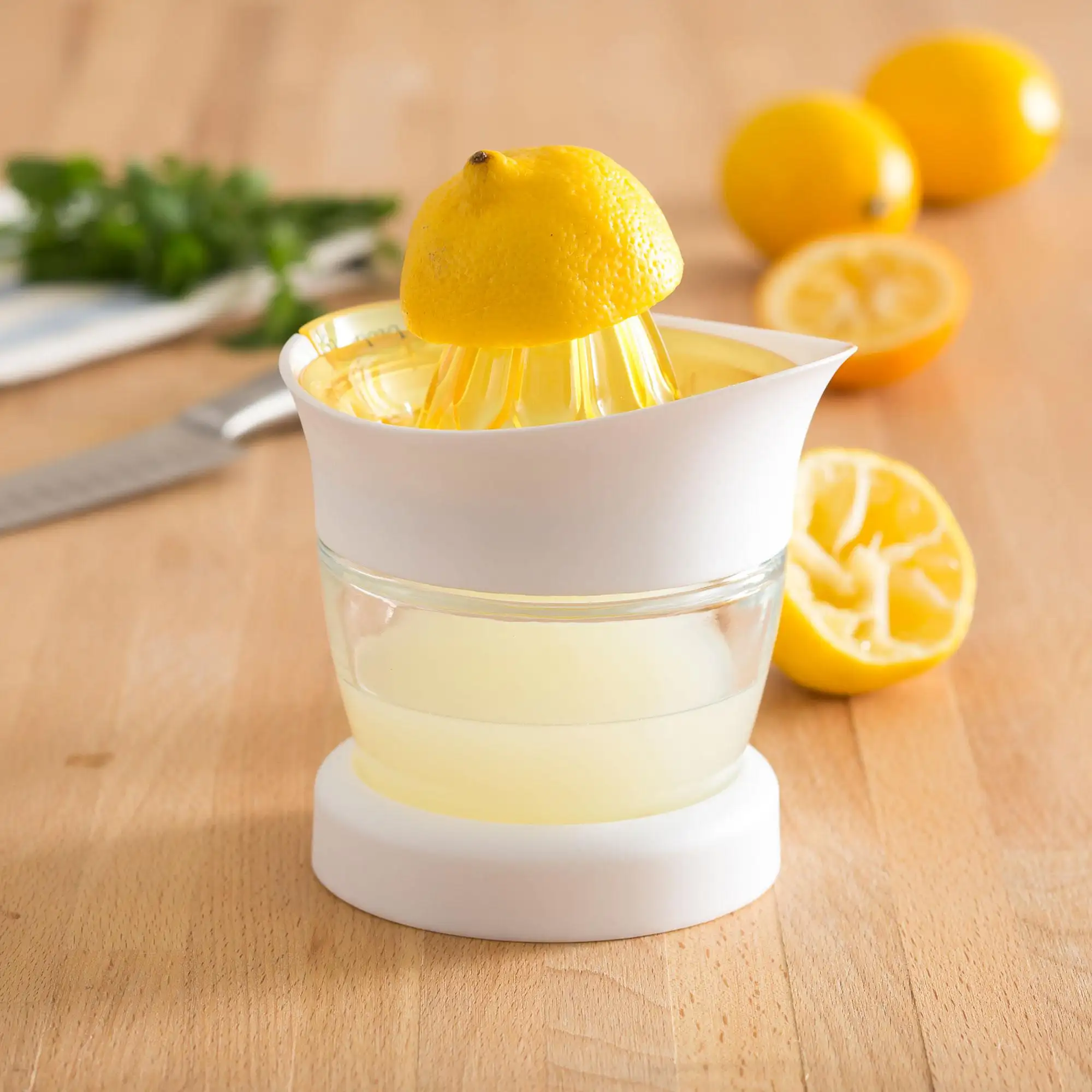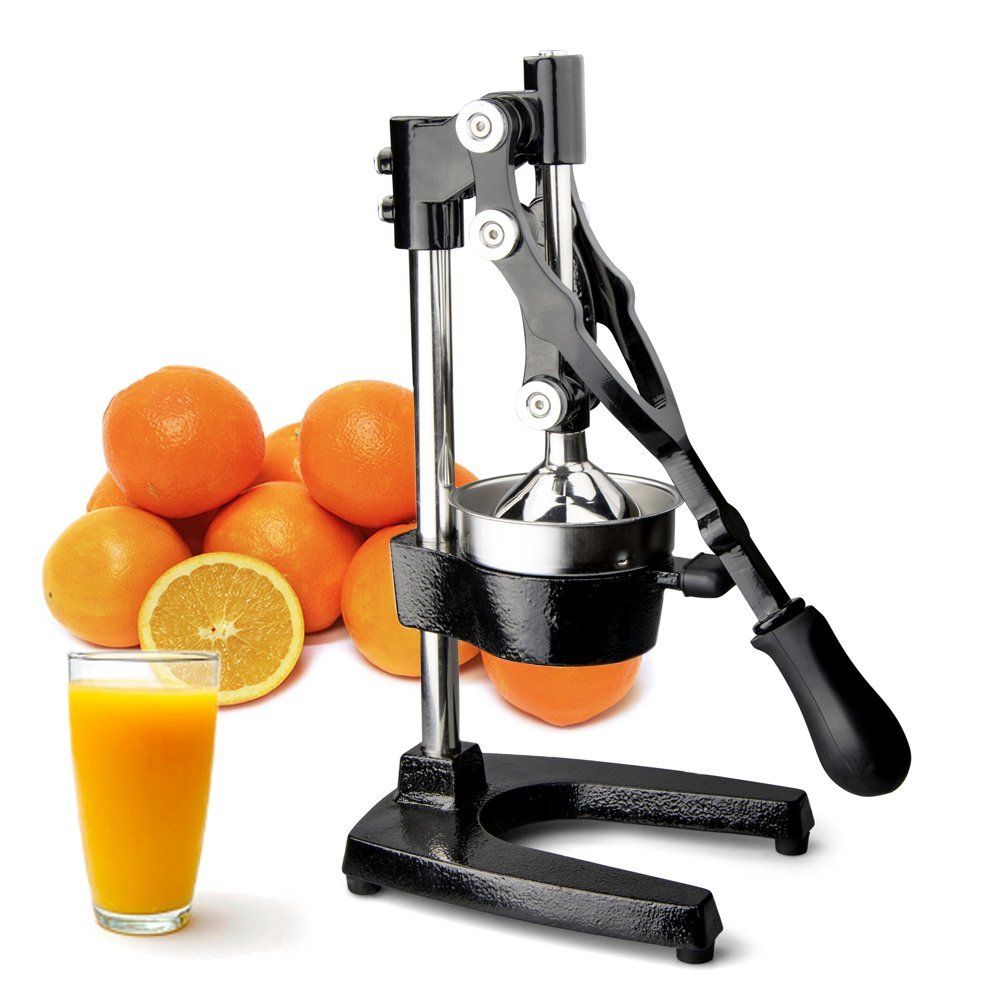
In today’s health-conscious world, having a reliable orange juicer is essential for anyone who desires fresh, nutritious, and delicious juice right at home. Whether you’re a morning smoothie enthusiast or someone who enjoys a glass of pure, citrusy refreshment, an orange juicer can significantly enhance your daily routine. This comprehensive guide explores the various types of orange juicers, their benefits, how to choose the right one, and tips for maintaining your juicer to ensure it serves you well for years to come.
Types of Orange Juicers
Manual vs. Electric Juicers
When selecting an orange juicer, one of the first decisions you’ll face is choosing between manual and electric models. Manual juicers, often simpler and more affordable, require physical effort to extract juice. They are typically more compact and easier to clean, making them ideal for those with limited kitchen space or who prefer a hands-on approach.
On the other hand, electric juicers offer speed and efficiency, allowing you to produce large quantities of juice with minimal effort. They come with various features such as pulp control, adjustable settings, and automated cleaning functions, catering to different preferences and lifestyles. Understanding the differences between these types will help you make an informed decision based on your needs and usage patterns.
Centrifugal vs. Masticating Juicers
Within the realm of electric juicers, there are two primary categories: centrifugal and masticating juicers. Centrifugal juicers use a rapidly spinning blade to extract juice, making them faster and generally less expensive. They are suitable for those who prioritize speed and efficiency, especially when preparing juice in the morning rush.
Masticating juicers, also known as slow juicers, operate at lower speeds, using a grinding and pressing technique to extract juice. This method preserves more nutrients and enzymes, resulting in higher-quality juice with a richer flavor. While masticating juicers typically come with a higher price tag, their ability to produce superior juice and handle a wider variety of produce can justify the investment for health enthusiasts and serious juice lovers.
Key Features to Consider
Juice Extraction Efficiency
One of the most critical aspects of an orange juicer is its juice extraction efficiency. A high-quality juicer should be able to extract the maximum amount of juice from each orange, minimizing waste and ensuring you get the most out of your fruit. Look for models with powerful motors and optimized feeding mechanisms that can handle different sizes and types of oranges without compromising performance.
Ease of Cleaning and Maintenance
A juicer that is difficult to clean can quickly become a source of frustration, leading you to abandon your juicing routine altogether. Therefore, it’s essential to choose an orange juicer that is easy to disassemble and clean. Removable parts that are dishwasher-safe can save you time and effort. Additionally, models with self-cleaning features or minimal parts are advantageous for maintaining hygiene and prolonging the lifespan of your appliance.
Durability and Build Quality
Investing in a durable orange juicer ensures that it will serve you well for many years. Pay attention to the materials used in its construction; stainless steel components are generally more durable and less prone to wear and tear compared to plastic parts. Reading customer reviews and considering the manufacturer’s warranty can also provide insights into the juicer’s longevity and reliability.
Noise Level
For those who value a quiet kitchen environment, the noise level of an orange juicer is an important consideration. Centrifugal juicers tend to be noisier due to their high-speed blades, whereas masticating juicers operate more quietly. If you prefer to juice without disturbing others or causing too much noise, opting for a quieter model can enhance your overall experience.
Size and Storage
Kitchen space is often limited, so the size and storage requirements of your orange juicer should be taken into account. Compact models that take up minimal counter space and can be easily stored in cabinets are ideal for smaller kitchens. Additionally, foldable or multi-functional juicers that serve other purposes can be a smart choice for maximizing space efficiency.
How to Choose the Right Orange Juicer for Your Needs
Assessing Your Juicing Frequency
Before selecting an orange juicer, consider how often you plan to use it. Daily juicing requires a durable, high-capacity model that can handle frequent use without overheating or experiencing performance issues. Occasional juicing, on the other hand, may call for a more affordable and lightweight option that meets your sporadic needs without unnecessary features.
Evaluating Your Budget
Orange juicers come in a wide range of prices, from budget-friendly manual models to high-end electric masticating juicers. Determine your budget beforehand to narrow down your options and find a juicer that delivers the best value within your price range. Remember that investing in a higher-quality juicer can offer better performance and longevity, potentially saving you money in the long term.
Considering Counter Space and Storage
Measure the available counter space in your kitchen and assess your storage options before making a purchase. Ensure that the orange juicer you choose fits comfortably without overcrowding your workspace. If space is limited, look for compact or multi-functional models that can be easily stored when not in use.
Identifying Additional Features
Different orange juicers come with various features that can enhance their functionality and user experience. Consider whether you need adjustable pulp control, multiple speed settings, or attachments for other types of juicing. Features like automatic pulp ejection or large feeding chutes can also add convenience, making your juicing process smoother and more efficient.
Reading Reviews and Seeking Recommendations
Researching customer reviews and seeking recommendations from friends or online communities can provide valuable insights into the performance and reliability of different orange juicers. Pay attention to feedback regarding ease of use, cleaning, durability, and customer service experiences to make an informed decision based on real-world experiences.
Maintenance Tips
Regular Cleaning
To maintain the efficiency and longevity of your orange juicer, it’s essential to clean it thoroughly after each use. Disassemble all removable parts and rinse them with warm, soapy water. Use a brush or sponge to remove any residual pulp or juice, ensuring that no buildup hinders the juicer’s performance. For electric models, follow the manufacturer’s instructions for safe cleaning practices.
Descaling and Deep Cleaning
Over time, mineral deposits from citrus juice can accumulate inside your orange juicer, especially if you live in an area with hard water. To prevent clogs and maintain optimal performance, periodically descale your juicer by running a mixture of water and vinegar through the system. Additionally, performing a deep cleaning process with baking soda and water can help eliminate stubborn residue and odors.
Proper Storage
Store your orange juicer in a dry, cool place to prevent moisture-related issues like mold and mildew. Ensure that all components are thoroughly dry before reassembling and storing the juicer. If possible, keep the juicer covered or in a closed cabinet to protect it from dust and debris.
Inspecting for Wear and Tear
Regularly inspect your orange juicer for signs of wear and tear, such as fraying cords, damaged blades, or loose parts. Addressing these issues promptly can prevent further damage and ensure that your juicer continues to operate safely and effectively. Replace any worn components as needed, following the manufacturer’s guidelines.
Popular Orange Juicer Models in the Market
Breville JE98XL Juice Fountain Plus
The Breville JE98XL Juice Fountain Plus is a favorite among users for its powerful motor and efficient juice extraction capabilities. This centrifugal juicer features dual-speed settings, allowing you to juice both soft and hard fruits with ease. Its wide feeding chute reduces prep time, and the large pulp container minimizes interruptions during juicing sessions. The Breville JE98XL is renowned for its durability, sleek design, and ease of cleaning, making it a top choice for households seeking a reliable and high-performing orange juicer.
Omega J8006HDS Nutrition Center Masticating Juicer
For those who prioritize nutrient retention and juice quality, the Omega J8006HDS Nutrition Center Masticating Juicer is an excellent option. This slow juicer operates at 80 RPMs, ensuring minimal heat buildup and oxidation, which preserves vitamins and enzymes in your juice. The Omega J8006HDS is versatile, handling not only oranges but also a wide range of fruits and vegetables, as well as leafy greens and wheatgrass. Its robust construction and comprehensive warranty make it a worthwhile investment for serious juice enthusiasts.
Hamilton Beach Big Mouth Juice Extractor
The Hamilton Beach Big Mouth Juice Extractor offers a budget-friendly solution without compromising on performance. Its powerful 800-watt motor and wide feed chute make juicing oranges quick and effortless. This centrifugal juicer is easy to assemble and disassemble, simplifying the cleaning process. The Hamilton Beach Big Mouth is praised for its affordability, reliability, and ability to handle large quantities of juice, making it suitable for families and frequent juice users.
Cuisinart CJE-1000 Die-Cast Juice Extractor
The Cuisinart CJE-1000 Die-Cast Juice Extractor combines style with functionality, featuring a durable die-cast metal base and a sleek stainless steel finish. This centrifugal juicer offers multiple speed settings, allowing you to adjust the juice extraction process based on the fruit’s firmness. Its four-stage juicing system maximizes juice yield while minimizing pulp, ensuring a smooth and flavorful orange juice every time. The Cuisinart CJE-1000 is lauded for its sturdy build, efficient performance, and easy maintenance.
Enhancing Your Juicing Experience
Pairing Juicing with a Healthy Lifestyle
Incorporate your orange juicing routine into a broader healthy lifestyle to maximize its benefits. Combine fresh orange juice with a balanced diet, regular exercise, and adequate hydration to support overall health and well-being. Using your orange juicer as part of a morning routine can set a positive tone for the day, providing essential nutrients and energy to kickstart your activities.
Sharing Juice with Family and Friends
Juicing can be a social activity that brings family and friends together. Invite loved ones to join you in making fresh orange juice, encouraging healthy habits and creating enjoyable moments. Sharing your homemade juice not only promotes a collaborative and interactive environment but also allows you to offer others the benefits of fresh, nutritious beverages.
Exploring Seasonal Fruits
While oranges are a staple for many, don’t hesitate to explore seasonal fruits that can be juiced alongside or instead of oranges. Seasonal varieties offer unique flavors and nutritional profiles, keeping your juicing experience diverse and exciting. Exploring different fruits also helps you take advantage of peak freshness and availability, enhancing the quality of your juice.
Utilizing Leftover Pulp
Instead of discarding the pulp from your orange juicer, find creative ways to use it in your kitchen. Orange pulp can be added to smoothies, baked goods, or homemade granola for an extra fiber boost. It can also be used as a natural remedy for skin care, offering moisturizing and exfoliating benefits. By repurposing pulp, you reduce food waste and maximize the value of your orange juicer.
Troubleshooting Common Issues
Juice Not Extracting Fully
If you find that your orange juicer isn’t extracting juice efficiently, several factors could be at play. Ensure that your oranges are ripe and properly prepared, as under-ripe or overly dry fruit can hinder juice extraction. Additionally, check for any blockages or residue buildup within the juicer and clean it thoroughly to restore optimal performance. Adjusting the pulp control settings or using a different juicing technique may also improve juice yield.
Excessive Heat During Juicing
Excessive heat can negatively impact the flavor and nutritional quality of your orange juice. If your juicer generates too much heat, it may be due to prolonged use without adequate breaks or an overloaded motor. To prevent overheating, adhere to usage guidelines, avoid juicing excessively large quantities at once, and allow the juicer to cool down between batches if necessary. If overheating persists, consult the manufacturer’s troubleshooting guide or seek professional assistance.
Stalling or Jamming
Stalling or jamming during the juicing process can be frustrating and hinder your juicing routine. Common causes include insufficient preparation of the oranges, such as not cutting them into appropriate sizes or removing the peel effectively. Ensure that you follow the recommended preparation steps, including separating the segments and removing the pith, to facilitate smooth juice extraction. Regular maintenance and cleaning can also prevent jamming by keeping the internal components free from debris.
Unusual Noises or Vibrations
Unusual noises or vibrations may indicate underlying issues with your orange juicer. These can result from loose parts, worn-out components, or imbalanced loading. Inspect the juicer for any loose screws, misaligned parts, or damaged components and address them promptly. Ensuring that the juicer is placed on a stable, level surface can also minimize vibrations and reduce noise levels during operation.
 Conclusion
Conclusion
Investing in a high-quality orange juicer is a step towards a healthier and more vibrant lifestyle. By choosing the right model that fits your needs, preferences, and budget, you can enjoy the benefits of fresh, delicious orange juice every day. From understanding the different types of juicers to maintaining and troubleshooting your appliance, this guide has equipped you with the knowledge to make an informed decision. Embrace the freshness and vitality that comes with each glass of orange juice, and let your orange juicer become an indispensable part of your kitchen routine.
